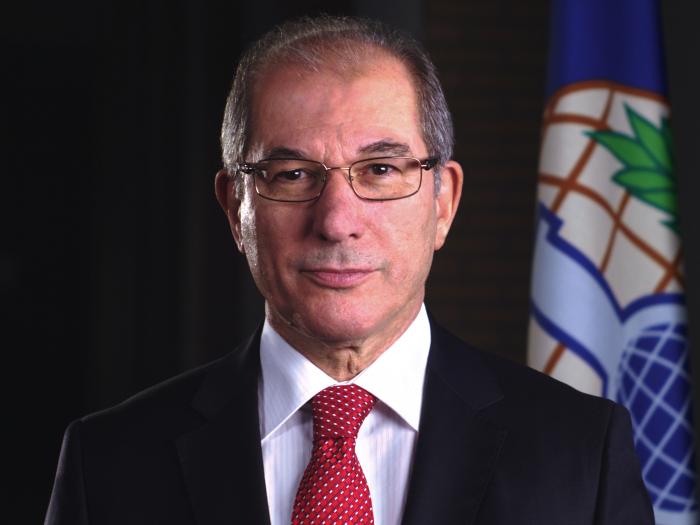OPCW Director-General Speaks on Chemical Weapons in Syria

The on-going war in Syria has resulted in one of the biggest international concerns about the use of chemical weapons in recent times. A public lecture by H.E. Ahmet Üzümcü focused on this extreme form of warfare, and offered added insight into the complexities of prohibiting its use.
The director-general of the Organization for the Prohibition of Chemical Weapons (OPCW) spoke at Georgetown University in Qatar (GU-Q) building on Sunday 23 October at 6:00 p.m.
The event was hosted in collaboration with the Qatari Ministry of Defense’s National Committee for the Prohibition of Weapons, the body responsible for implementing and raising awareness of international weapons conventions in the State of Qatar. It focused on the role of the OPCW in prohibiting chemical weapons in Syria, the challenges faced, and his predictions for the future.
“Chemical weapons are an on-going threat to safety and security in the region and beyond,” said Senior Assistant Dean for Faculty Affairs and Research Administration at GU-Q, Dr. Kai-Henrik Barth, who helped organize the event. “We hope that events such as these can build a greater understanding of the challenges of preventing their use, and help raise awareness of the issue among our students and the wider community in Qatar.”
Üzümcü, who has served as director-general of the OPCW since 2010, has a history in international affairs, having previously served as the Permanent Representative of the Republic of Turkey to the United Nations in Geneva. He has also represented Turkey at the North Atlantic Treaty Organization Council, the Conference on Disarmament, and other international organizations. In 2013, he accepted the Nobel Peace Prize on behalf of the OPCW.
In a bid to increase familiarity with the conventions related to weapons of mass destruction, the National Committee for the Prohibition of Weapons and GU-Q also recently hosted an awareness workshop, which was attended by students from seven local universities.